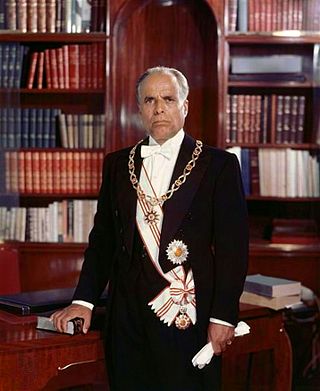
Habib Bourguiba was a Tunisian lawyer, nationalist leader and statesman who led the country from 1956 to 1957 as the prime minister of the Kingdom of Tunisia (1956–1957) then as the first president of Tunisia (1957–1987). Prior to his presidency, he led the nation to independence from France, ending the 75-year-old protectorate and earning the title of "Supreme Combatant".

Tunisian culture is a product of more than three thousand years of history and an important multi-ethnic influx. Ancient Tunisia was a major civilization crossing through history; different cultures, civilizations and multiple successive dynasties contributed to the culture of the country over centuries with varying degrees of influence. Among these cultures were the Carthaginian – their native civilization, Roman, Vandal, Jewish, Christian, Arab, Islamic, Turkish, and French, in addition to native Amazigh. This unique mixture of cultures made Tunisia, with its strategic geographical location in the Mediterranean, the core of several civilizations of Mare Nostrum.

Tunisian Arabic, or simply Tunisian, is a variety of Arabic spoken in Tunisia. It is known among its 12 million speakers as Tūnsi, "Tunisian" or Derja to distinguish it from Modern Standard Arabic, the official language of Tunisia. Tunisian Arabic is mostly similar to eastern Algerian Arabic and western Libyan Arabic.
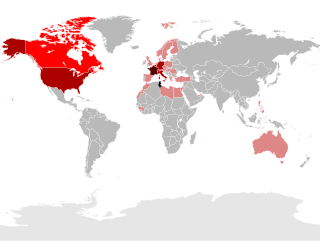
Tunisians are the citizens and nationals of Tunisia in North Africa, who speak Tunisian Arabic and share a common Tunisian culture and identity. In addition to the approximately 12 million residents in Tunisia, a Tunisian diaspora has been established with modern migration, particularly in Western Europe, namely France, Italy and Germany. The vast majority of Tunisians identify as Arabs who adhere to Sunni Islam.

Lesbian, gay, bisexual, and transgender (LGBT) people in Tunisia face legal challenges not experienced by non-LGBT residents. Both male and female kinds of same-sex sexual activity are illegal in the country. According to the United States Department of State's 2018 report on human rights in Tunisia, "authorities occasionally use [the anti-sodomy law] to detain and question persons about their sexual activities and orientation, reportedly at times based on appearance alone."
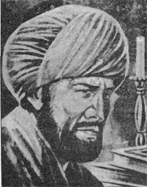
Abū Jaʿfar Aḥmad ibn Ibrāhīm ibn Abī Khālid ibn al-Jazzār al-Qayrawani (895–979), was a 10th-century Muslim Arab physician who became famous for his writings on Islamic medicine. He was born in Qayrawan in Tunisia. He was known in Europe by the Latinized name Algizar.
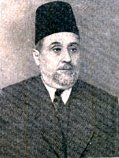
Abdelaziz Thâalbi was a Tunisian politician. He was one of the founding members of the Destour party.
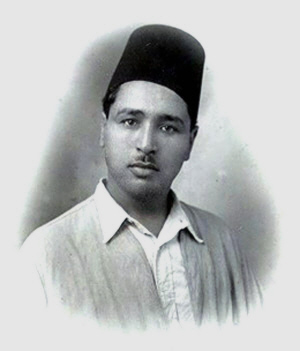
Tahar Haddad was a Tunisian author, trade unionist, socialist, scholar and reformer.
Tunisian literature exists primarily in Arabic and in French. Arabic literature in Tunisia dates to the 7th century, with the arrival of Arab civilization in the region. Arabic literature is more important than francophone literature—which followed the introduction of the French protectorate in 1881—both in volume and value. The national bibliography lists 1,249 non-academic books published in 2002 in Tunisia, of which 885 titles are in Arabic. Nearly a third of these books are intended for children.
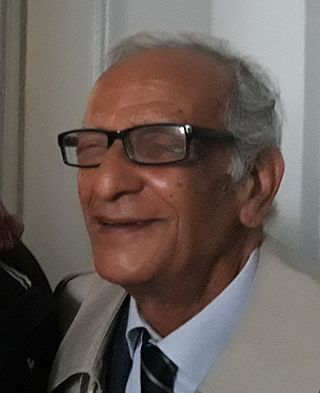
Youssef Seddik is a noted Tunisian philosopher and anthropologist specializing in Ancient Greece and the anthropology of the Qur'an.

Mohamed Fadhel Ben Achour was a Tunisian theologian, writer, trade unionist, intellectual and patriot born in La Marsa.

Ahmad ibn Abi Diyaf, known colloquially as Bin Diyaf, was the author of a chronicle of Tunisian history. He was also a long-time and trusted official in the Beylical government of Tunisia. His multi-volume history, while it begins with the 7th-century arrival of the Arabs, devotes the most attention to details of the Husainid dynasty (1705–1957), during the 18th and 19th centuries. His writing is informed by his experience as chancellery secretary during the reigns of five Beys in succession. Bin Diyaf himself eventually favored the reform view, which was current then in Tunisian politics. His letter in reply to questions about Tunisian women has also attracted the interest of scholars of history.
The Tunisian national movement was a sociopolitical movement, born at the beginning of the 20th century, which led to the fight against the French protectorate of Tunisia and gained Tunisian independence in 1956. Inspired by the ideology of the Young Turks and Tunisian political reforms in the latter half of the 19th century, the group of traditionalists—lawyers, doctors and journalists—gradually gave way to a well-structured political organisation of the new French-educated elite. The organisation could mobilise supporters to confront the authorities of the protectorate in order to advance the demands that it made of the French government. The movement's strategy alternated between negotiations and armed confrontations over the years. Support from the powerful trade unions and the feminist movement, along with an intellectual and musical cultural revival, contributed to a strong assertion of national identity which was reinforced by the educational and political systems after independence.
The Turks in Tunisia, also known as Turco-Tunisians and Tunisian Turks, are ethnic Turks who constitute one of the minority groups in Tunisia.

Mahmoud Messadi was a Tunisian author and intellectual who also served as Minister of Education and Minister of Culture. He is one of the most prominent Tunisian novelists of the 20th century.

Souq Al Bchamkiya is a former souk of the medina of Tunis, specialized in bechmak trading.
Dorra Bouzid was a Tunisian journalist, art critic, and feminist.

Dalenda Bouzgarrou-Larguèche, better known as Dalenda Larguèche, is a Tunisian historian specializing in the early modern period and women in Islamic societies. She is also a longtime political activist, particularly focused on the rights of women and other marginalized people.
Events in the year 2021 in Tunisia.
Hussein Khodja was a Tunisian politician and a mamluk who rose to become Prime Minister of Tunisia.














